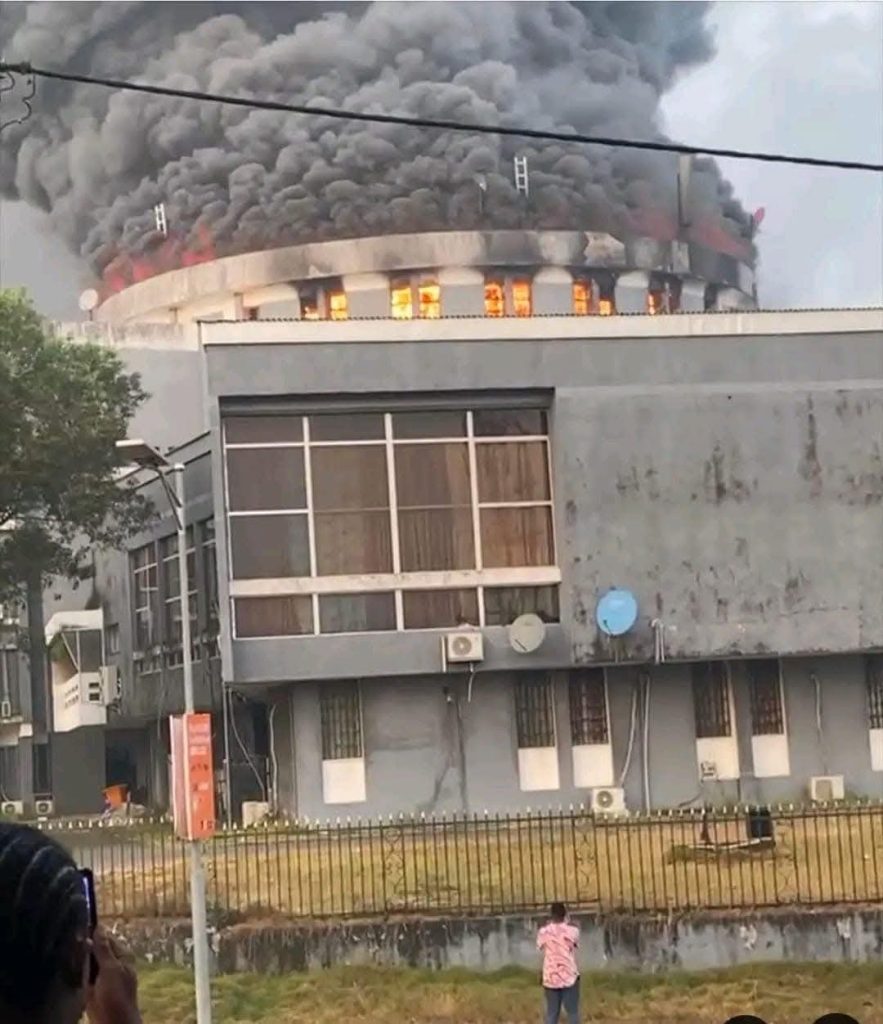The fire that ravaged the Rotunda of Liberia’s Capitol Building on December 18, 2024, ignited not only the physical structure but also a blaze of controversy and political finger-pointing. The incident occurred amidst a volatile power struggle within the House of Representatives, further fueling suspicions of foul play. Majority bloc members, having controversially elected Richard Nagbe Koon as Speaker despite lacking the constitutionally required votes, were using the Rotunda at the time of the fire. This immediately cast suspicion on the opposing faction, led by ousted Speaker J. Fonati Koffa. The ensuing investigation, however, instead of quelling the flames of distrust, has only intensified them.
President Joseph Boakai’s immediate reaction to the fire, labeling it the work of “hooligans” even before any official investigation had commenced, drew sharp criticism from various quarters. Critics, including former Representative Moses Gray, argue that the President’s premature declaration prejudiced the investigation, effectively influencing its course and outcome. They see this as a calculated attempt to target the opposition, specifically those aligned with the ousted Speaker Koffa. This perception of bias casts a long shadow over the credibility of the investigation’s findings.
The Liberia National Police, under the leadership of Inspector General Col. Gregory Coleman, announced the arrest of 73 individuals a day after the fire. These individuals were participants in an anti-government demonstration held on the Capitol grounds the day prior to the incident. Several others were labeled “persons of interest,” including opposition lawmaker Frank Saah Foko. This move further fueled accusations of political motivation behind the arrests, with critics arguing that the police were focusing on silencing dissent rather than conducting an impartial investigation. The fact that security officers on duty during the fire were also among those arrested, and later released, further muddied the waters, raising questions about the thoroughness and objectivity of the investigation.
Adding to the controversy surrounding the investigation is the history of the Liberia National Police’s involvement in the political power struggle within the House. The police had been providing security specifically for the majority bloc led by Koon, leaving the minority bloc vulnerable. Critics, like Gray, argue that this partisan provision of security renders the police complicit in the conflict and incapable of conducting an unbiased investigation. They call for the recusal of IG Coleman, citing his past actions, including providing security for the ruling Unity Party during the 2023 campaign and his alleged involvement in extraditing a Guinean national to the Guinean junta, as evidence of his political biases.
Defenders of the police investigation, such as ruling UP campaign spokesperson Mohammed Ali, argue that the evidence collected will ultimately be subject to judicial scrutiny. They maintain that the courts will determine the validity of the investigation and the fairness of any subsequent charges. Furthermore, Representative Foday Fahnbulleh, a member of the majority bloc, expresses confidence in the professionalism and objectivity of the police. He points to pre-existing threats and tensions surrounding the Capitol Building as justification for the arson conclusion. He dismisses accusations of political bias against IG Coleman, stressing that the IG’s appointment by the UP-led government does not negate his duty to conduct a fair and impartial investigation as the head of the National Police.
Amidst this heated debate, some voices call for a de-escalation of political rhetoric and a focus on allowing the investigation to run its course. Edwin Massally, for instance, urges the public to refrain from politicizing the investigation and allow the police to gather evidence and present their findings. He stresses the need to wait for the outcome of the investigation before drawing conclusions and making potentially damaging accusations. The call for patience and objectivity reflects a desire to ensure that the truth surrounding the Capitol Building fire is revealed, regardless of political affiliations. The investigation continues, and its findings will ultimately determine the course of justice and accountability in this politically charged incident.














